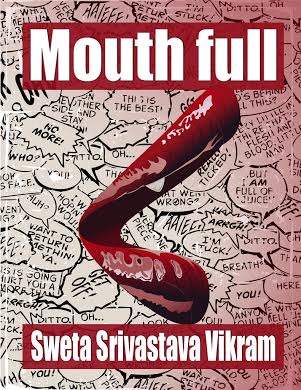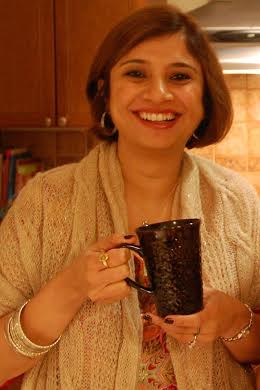
by Sweta Vikram
“I like what your name means. I wonder if there is a Hebrew name with the same meaning. I would call my child that,” said one of our friends when my husband explained the gist of his name—Anudit, which means the first ray of sunlight that disperses darkness.

The way handbags are to New York women, cars to Los Angelenos, wine to the French, and pasta to the Italians, the relevance of a name is to an Indian. Depending on the part of India you are from, the religious faith you are born into, and the caste you belong to, the ritual of the naming convention might differ. But the core never changes—your name is your statement you make to the world.
Particularly in India, the religious authority, planetary alignments, astrologically auspicious alphabet, and precocious family members all brew their genius together and conjure up the magical word. Some Hindus believe in reincarnation. I have heard stories where pundits have looked at a newborn’s horoscope and commented on the baby’s deeds in its prior birth. A very dear friend of mine was named Kashmina (a stately name) because she was (apparently) a princess in her previous life. The conviction was that to continue her legacy and fortune in this world, a name alluding to her ‘princess days’ would whip up some good karma and ensure an affluent life. The postulation might sound incredulous, but, as it turns out, my friend does bask in the warmth of opulence.
Shreshth, meaning ‘the greatest’, is the name of my youngest cousin—a godsend child born after three or four miscarriages. Of course, in our entire family, he is the one who scored the highest marks in the career-determining tenth grade exams. And he eventually joined the prestigious Indian Institute of Technology in Kanpur for a degree in engineering. Even the dog in his neighborhood beamed with pride over the boy.
When I learned that my name, Sweta, was an ordinary name for thousands of girls in just one state in India, I was heartbroken. Neither did it have an esoteric flavor nor did it reflect my undying chivalry of my preceding life (according to the astrologer’s blather, I was a loyal warrior who had laid down his life for the king).
Be careful what you wish for.”
This clichéd adage rings in my ears every time I think of the day I wished and hoped my ordinary name would at least have an extraordinary meaning. It did and unraveling the explanation of Sweta has created the most unexpected, cultural journey of my life.
‘Shwet’ means white. Literally, the color white. ‘Sweta’ is an extension of ‘shwet’. “Why do you not like your name? Sweta means white. You look like your name,” said one of the verbally challenged, elderly, wise ones.
“No problem finding a groom for you,” said another relative. Those inane words qualified under the compliment category since being fair-skinned in India is synonymous with beautiful, which supposedly makes the ‘groom-hunting’ process much easier.
Even as a child, I remember saying to my mother,
Ma, my name is as common as onions and potatoes in a street vendor’s basket.”
I wasn’t unnecessarily whiny; every tenth girl in my class was named Sweta or Shweta. Lo and behold, I had a second cousin named Shweta. Apart from our common love for food, I don’t think we were similar at all. My misery was exacerbated when I heard variations to my already banal name, like Mahashweta, and Lakshmisweta.
I set forth to find out how and why I was deprived of the talented naming team and given an appellation of half the women in North India. I found out that my maternal aunt had named me. “But why didn’t you name me, Ma?” I asked.
Beta, we’d already named your brother.”
A side note on Indian culture: In my parents’ generation, it was acceptable for relatives to name the babies instead of the parents and sometimes, the name would be picked without even the parents’ consent. I know my husband’s maternal grandmother named him, and his maternal uncle decided to name his sister, and my brother’s wife was named by her paternal grandmother. The first time I found out that my mother was named by a nurse in the hospital where she was born, I was shocked. Apparently, she liked my mother’s eyelashes and gave her a name that was symbolic of her beautiful feature—Nimmi.
My maternal grandmother, Amma (May she rest in peace), out of sheer love and ignorance, gave one of my cousins an abysmal nickname—Pappu. How bad a name is Pappu, you wonder? Think Gaylord Focker and add the following imagery to it: impotent, mama’s boy, and brazen. Better sense prevailed, and in his boastful, testosterone years, my cousin chose to lie about his devastating pet name lest it would have earned him a life of celibacy as an adult. I know a thirty-year old man, who was nicknamed Baua (baby) by his aunt and until date his parents continue to address him by that name. Is it a surprise that he hasn’t yet gone out on a single date? I don’t think so.
Years passed by, life went on along with my disenchantment with the ordinariness of my name until my husband, and I moved to New York City. In the land of Laura, Jessica, Katie, and Cathy, Sweta became an exotic icebreaker. Unlike few of my friends, whose names were mutilated by improper pronunciations—Nidhi was called ‘Needy’, Vivek was morphed into a two-syllable sleeping disorder— ‘Why-wake’, and, Ruksana got baptized as ‘Roxana’, people spent time grasping and spelling Sweta. Few looked mesmerized.<
How do you say it? Sweet-ah?”
I got, “What a beautiful name!” from bank tellers to colleagues to classmates to neighbors.
Sweta, like you, sweet. It is also Russian name. Means light. You Russian?”
I didn’t need to Anglicize my name like few peers I knew (Nagesh became ‘Nick’ and Gaurav became ‘Gary’) to establish my identity in a new country. The move from Mumbai to New York City meant my name went from being trite to an international novelty.
However, over a period of time, my euphoria began to diminish every time I had to explain the meaning of Sweta to the erudite, sensitive, and verbally diplomatic New York City populace. In politically correct America, the meaning of my first name sounded like the white-pride attached to the Ku Klux Klan. I got those stay-away-from-me-you-sick-bigot looks. Growing up in a non-global world, I didn’t see anything offensive with the color connotation attached to my name. I didn’t know better. Ironically, in India, though hackneyed, my name exuded my skin color, which in turn, made me desired bride material; in New York City, my name, which people found alluring, had a negative implication attached to it and portrayed me as a xenophobe.
I eventually mastered the American diplomacy with words. I would say: “My name means white but not in a racist way; white as in purity and peace.” Between my insatiable curiosity and resolve, I was determined to find out an alternate angle to the meaning of my name. Through diligent hours devoted to the television and researching, I found out that the goddess of dance in Hinduism was called Shweta/Sweta. I couldn’t believe my ears. I have always wanted to make a profession out of dancing. Though I wasn’t ecstatic about the option available, but the Goddess-route meant at least I wasn’t conscious of ‘the meaning’ any longer
My insignificant battle with my name aside, I was suddenly forced to think of a value of a name after the numerous tragedies of the last decade starting with the World Trade Center attacks in New York, the distressing bomb blasts in London; and, the heinous attacks on Mumbai in November 2008. Religious fanatics killed innocent civilians going about their day-to-day activity. But, did they just end human lives or were faith and trust butchered along the way?
I have a close Muslim friend, who was born in New York. Despite being an American citizen, due to his Islamic name, he feels like an outsider in his own country. The first time he asked me if my husband, who like a lot of South Asian men can be mistaken for a Middle Easterner, was ever a victim of racial profiling, I was bewildered by the question.
I understood the gravity of his words when he confessed, “I am treated differently at airports because of my name.” Another Muslim friend of mine was thrilled when President Barack Obama decided to say use middle name, Hussein, during the swearing in ceremony.
If he can use his Islamic middle name with pride, maybe I can too?”
I realized that I might not be thrilled with my mundane name, but my ongoing journey with it is inconsequential compared to what some others have to deal with. I am learning to accept that at least the name Sweta intrigues an international crowd, evokes pleasant curiosity and humorous memories and is not judged gratuitously. The emotional freedom embracing it is priceless.
I wonder what made Shakespeare write, “What’s in a name?”
 Personal Essay “It’s all in a name” excerpted with permission from the book “Mouth Full” published by J Publishing Company Limited. Copyright (c) 2012 Sweta Srivastava Vikram. All Rights Reserved.
Personal Essay “It’s all in a name” excerpted with permission from the book “Mouth Full” published by J Publishing Company Limited. Copyright (c) 2012 Sweta Srivastava Vikram. All Rights Reserved.
Author Bio: Sweta Srivastava Vikram is an award-winning poet, writer, novelist, author, essayist, columnist, and educator. Born in India, Sweta spent her formative years between India, North Africa, and the United States. She is the author of five chapbooks of poetry, two collaborative collections of poetry, a novel, and a nonfiction book. She also has two upcoming book-length collections of poetry in 2014. Her work has also appeared in several anthologies, literary journals, and online publications across eight countries in three continents. Sweta has won three Pushcart Prize nominations, Queens Council on the Arts Grant for BYOB Program, an International Poetry Award, Best of the Net Nomination, Nomination for Asian American Members’ Choice Awards & Independent Literary Awards, and writing fellowships. A graduate of ColumbiaUniversity, she lives in New York City with her husband and teaches creative writing across the globe & gives talks on gender studies. To learn more about Vikram, visit www.swetavikram.com or follow her on her Facebook.
All photos are provided by Sweta Vikram.




